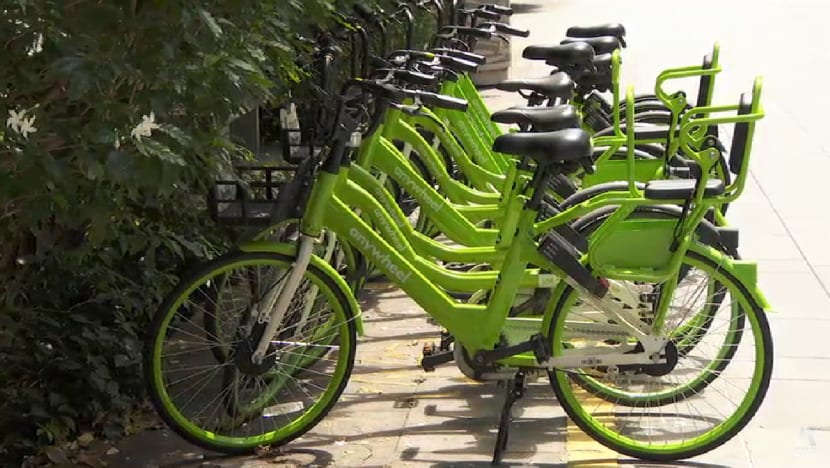Bicycle-sharing operators in Singapore focus on product quality amid changing landscape
Most shared bicycles are now found in the central, southern, and eastern parts of Singapore.

Anywheel, which was started in 2017, has seen how former operators failed to succeed and had their licences cancelled.
SINGAPORE: With fewer shared bikes across Singapore, some bicycle-sharing operators are now shifting their focus to offering a better product.
Even though the bicycle-sharing landscape has changed dramatically from the past, these companies believe shared bicycles still have a future in Singapore.
Most shared bicycles are now found in the central, southern, and eastern parts of the country.
These areas are also where Anywheel, the largest bike-sharing operator, deploys most of its 30,000-strong fleet, as they are where most trips are made and new riders register.
HELPING BIKE-SHARING FIRMS TO MANAGE OPERATIONS
Limiting the scope for now also helps such firms to manage operations, such as deploying vehicles to pick up damaged or stranded bicycles.
“Due to experiences of some of the other operators in the past, it’s very important for a company like Anywheel to be very careful about expansion and operation,” said Anywheel founder and chief executive officer Htay Aung.
“We have to make sure that if we want to expand beyond our current fleet size, we have to be able to responsibly handle the fleet, without causing hazards to people that don't use our service.”
Anywheel, which was started in 2017, has seen how former operators failed to do so and had their licences cancelled. It has also witnessed how the bike-sharing industry grew and then shrank.
Not every neighbourhood in Singapore has shared bikes readily available, as operators are more selective about where they deploy them.
They are also more focused on upgrading older bikes in their fleets, instead of rolling out more bicycles. These upgrades include having child seats on their bicycles.
IMPROVING FEATURES TO BETTER SERVE USERS
HelloRide, the newest operator on the scene, is also looking into lighter bikes with better steering and seats with adjustable heights.
The company has been limited to 1,000 bicycles for now, while it proves to authorities that it can operate responsibly. It intends to upgrade to a full operating licence to put more bikes on the streets.
“Shared travel depends on support from the public. We especially consider how to improve or better serve those last-mile journeys for travellers. So, we place our focus on how to raise the standards of our service,” said HelloRide marketing director Vicky Xie.
“To win support, we should be relying on rider experience and word of mouth, not comparing whose rates are lower.”




















